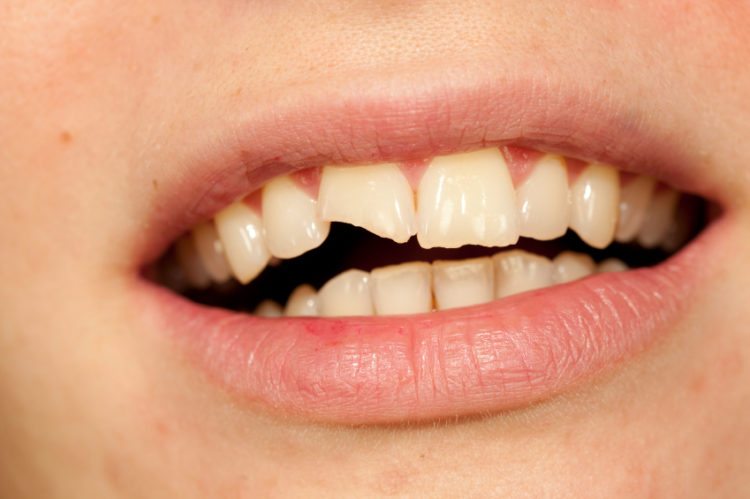
Although most chipped teeth fall far short of a medical emergency, they can damage your smile and your self esteem if untreated. Fortunately, modern dentistry has a number of simple fixes for chipped teeth of any severity.
Chipping a tooth is fairly common among children and adults. Whether it’s from playing a sport or a more mundane cause like biting into a utensil or bone, panic is a common first reaction.
If you chip your tooth, start by taking a deep breath. Unless it’s a severe chip, it likely won’t need immediate attention.
That doesn’t mean neglect the tooth for years, however. The physical and, perhaps more importantly, mental tolls of a chipped tooth are enough of a reason to schedule a consultation with your dentist as soon as you can.
Three Ramifications of Chipping a Tooth
1. Soft oral tissue damage – Even minor tooth chips have sharp edges that can damage your soft oral tissue, like your tongue and lips.
2. Damaged tooth pulp – If the chip is deep enough, it can seriously damage the pulp inside. Tooth pulp is like the guts of your tooth, comprised of all living tooth tissue, including blood vessels, nerves, and connective tissue. Damage to tooth pulp can be extremely painful, and if untreated, a serious infection can develop.
3. Lowered self-esteem – Perhaps the most common – and sometimes serious – consequence of a chipped tooth is the blow to your self-esteem. Our smile is an expression of who we are, and though you might not realize it, shielding your smile out of embarrassment prevents you from living a full and healthy life.
In fact, research has found that having confidence in your smile can improve your life in at least seven ways, including your cardiovascular health, job performance and relationships.
How Your Dentist Can Fix a Chipped Tooth
The first thing to do is schedule an evaluation with your dentist. He or she will take an x-ray to determine if the damage is simply cosmetic, or if the pulp and/or root have been impaired.
If it’s a minor enough chip, your dentist may be able to simply smooth down the rough edges or fill it in with a tooth-colored composite. It might even be possible to bond a broken tooth fragment back in place.
A more severe chip that does not damage the root or pulp generally requires a protective cover with either a porcelain veneer or crown. Again, this is a fairly simple cosmetic procedure that can fully restore the tooth’s appearance.
In more serious cases, when the pulp has been damaged, you may require root canal treatment before a crown can be applied. If the tooth is vertically fractured, especially below the gum line, it will require root canal treatment and protective restoration before the crown is placed.
Finally, if the damage is so extensive that there isn’t enough structure remaining to hold a crown, your dentist may need to extract the tooth. Then, they’ll place bridges, implants or some other removable device to fill the gap.
Although chipping a tooth can be a jarring experience, there’s no reason to panic. No matter the severity, a dentist can fix your tooth, restoring its original appearance and your self esteem.
